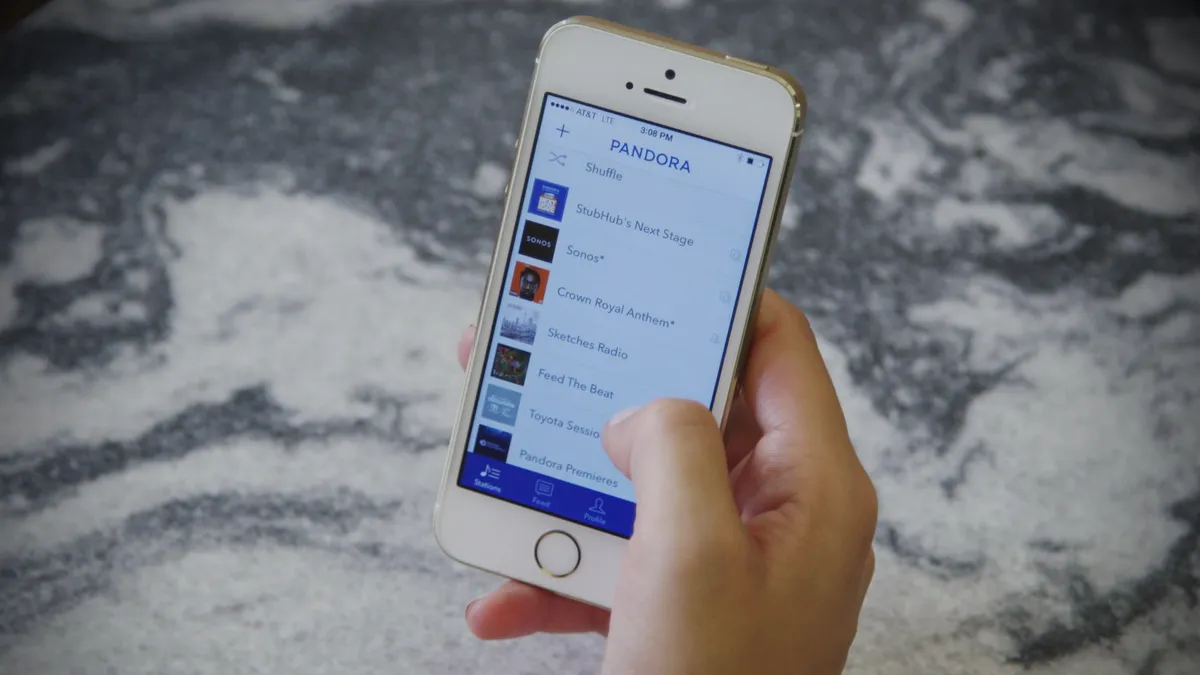Brief:
- Pandora plans to test voice-powered ads that will let marketers try to engage listeners in conversational commerce. The music streaming platform is working with ad-tech firm Instreamatic.ai on ads that respond to the voice commands of listeners, per a blog post.
- Voice-enabled ads will let listeners verbally respond to a sponsor's call to action. That means listeners can ask for more information about an advertised product, place a direct order or skip past the ad.
- Advertisers also can better track the response to audio ads, making them comparable with other digital formats such as banners, video spots, native ads and sponsored links. Instreamatic.ai relies on artificial intelligence (AI) and natural-language processing (NLP) technology to equip ads with conversational features.
Insight:
For Pandora, voice-powered audio ads may boost its appeal among advertisers as the streaming service adds more targeting features. While music streaming services like Pandora seek steady revenue from paid subscribers, they also reach millions of people who are willing to listen to advertising in exchange for free music. Marketers can reach these listeners with audio spots, but interactivity is mostly limited to urging listeners to visit a website. Instreamatic.ai and Pandora aim to close the loop between delivering an audio ad and giving listeners a chance to respond directly with a voice command. Such interactivity will improve the ability to track audio ad ROI while engaging potential customers in conversational commerce.
The news of voice-activated ads follows Pandora's moves to let advertisers target more specific device types with their messages, including smart speakers like Google Home or Amazon Echo, along with gaming consoles and smart TVs. The ability to attract more dollars from brands looking to reach voice users could additionally could help Pandora compete more effectively against rivals like Spotify and Apple Music.
Other companies have introduced ad products to break down the barriers to connecting with consumers through voice and audio formats like podcasts. The agency Spark Foundry and technology firm AI Music last month announced an artificial intelligence-powered solution that automatically generates ad creative based on what a user is listening to, such as a particular genre of music. Cox Communications, a pilot partner of Sympaphonic Ads, has increased brand engagement and cut down on costs and production time with the unit, though it didn't detail its results.
Pandora's interest in voice-activated ads also speaks to the growing popularity of smart speakers, a market expected to jump 15% in 2019 to 74.2 million, according to eMarketer. The devices are powered by virtual assistants like Amazon Alexa, Google Assistant or Apple’s Siri that help to support voice commerce. However, voice platforms have produced few notable successes in reaching consumers, per Bloomberg.
Just one-third (28%) of people who own voice-activated speakers used them to make a purchase in the previous seven days, per a study by Visa and publisher Pymnts.com. Still, voice commerce is predicted to grow to more than $80 billion a year by 2023, but mostly on the strength of money transfers and digital media like on-demand movies, music and TV shows — not physical goods, Juniper Research predicted.














